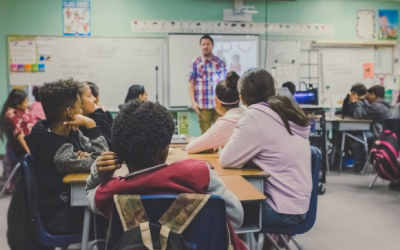Blog and articles

Digital books support children’s learning but they need to be of good quality
Reading on screen has received a lot of bad press for its damaging effect on readers’ concentration levels. However, digital books, such as e-books and interactive apps, can meaningfully expand the reading repertoire of young children. When digital books are well-designed, they can cater to the learning needs of all children including those who typically need most support.

The value of relationships in moving through recovery following the Covid-19 global pandemic.
The abrupt closure of schools, colleges and universities due to the global pandemic of Covid-19 led to extraordinary work across the entire education system to support learners and local communities.

Managing Digital Learning during COVID-19 and Beyond
The recent pandemic has led to unprecedented challenges for school leadership teams and their staff. Almost overnight, they have had to create policies and working practices in a very short timeframe.

Integrating online learning provision: What will schools take forward post-pandemic?
An 18-month research project is seeking to identify what online learning innovations schools can and will be keeping post-pandemic. Dr Katharine Jewitt and Dr Jacqueline Baxter report on their preliminary findings
Leading school learning through Covid-19 and beyond – initial results from our online survey
This post outlines initial findings from the survey section of our mixed methods study exploring how school leaders strategically manage and plan for the online provision of learning through the Covid-19 pandemic and beyond.
Key themes emerging from the qualitative pilot study
Over March and April 2021, a pilot study of ten qualitative interviews was carried out with headteachers and CEOs of multi-academy trusts.

Leading online learning: Out of crisis comes opportunity
One of our key research questions investigates whether changes and new ways of doing things, implemented during Covid, are going to have a long-term effect on schools’ vision of education to come.